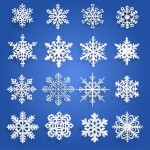 When you’re trying to interest an agent or publisher in your book, you’re often asked to provide “comps” — other books that could be compared to yours, or books that might compete with yours. A good book proposal always has a “Competition” or “Comparable Books” section, and even if you’re self-publishing, it helps if you give readers a frame of reference in the form of similar books.
When you’re trying to interest an agent or publisher in your book, you’re often asked to provide “comps” — other books that could be compared to yours, or books that might compete with yours. A good book proposal always has a “Competition” or “Comparable Books” section, and even if you’re self-publishing, it helps if you give readers a frame of reference in the form of similar books.
One of the most common questions I’m regularly asked is, “How do I figure out what books to include in my comps?” People get all hung up on it, especially with fiction. Do I look for books with the same premise or plot? Same time period? Same writing style? How do I know what to include?
I’m going to make it easy for you.
Ask yourself, “Who are my readers? What are they reading right now?” Those are your comparable books.
Keep this line in mind:
“People who enjoy the following books are likely to enjoy my book.”
You can use that line in a proposal, then follow it with the comparable books, and for each one, a brief explanation of why your book would appeal to those same readers. This approach frees you from trying to decipher what an agent is looking for, and instead, use those comps to identify your audience.
If you can’t readily identify six to ten books or authors whom your potential readers are already reading, then you need to stop what you’re doing and get a lot more educated about what’s already out in the marketplace, and who your potential audience is. If you can’t identify your audience, then how will you or a publisher sell your book to them?
Providing “comps” is all about helping your agent, your editors, your marketing team, and your readers to capture a vision for your book.
Too often, writers tell me, “I’ve looked and looked, and I can’t find anything quite like my book.” You and I both know that’s a cop-out. Think about your potential readers, and figure out what they are already reading. It’s that simple.
To read a little more about how to create a strong Competition section for your book proposal, click HERE.
Do you know what books your potential readers are already enjoying? How do you research this?
Comment below, or by clicking: HERE.
 TWEETABLES
TWEETABLES
The one simple secret to providing “comps” for your book. Click to Tweet.
Think there are no other books like yours? Think again. Click to Tweet.
Providing “comps” for your book is as simple as knowing your audience. Click to Tweet.
Image copyright: dgilder / 123RF Stock Photo
The post Finding Comparable Books appeared first on Rachelle Gardner.
 “To my knowledge, nothing like this has ever been written. Ever. It is utterly fresh, mine and complete.”
“To my knowledge, nothing like this has ever been written. Ever. It is utterly fresh, mine and complete.”
That was a line in a query I received.
It’s hard to explain how this sounds to agents and editors who get pitched everything under the sun, are typically well-read, and are aware of what’s going on in the publishing marketplace. The book might be unique but not to the extent the writer seems to think.
When pitching your work, you have to walk a fine line: Be confident, but don’t come off as grandiose. Stress your original and fresh voice, yet don’t be afraid to acknowledge there have been other books similar to yours, whether in plot, style, theme, whatever. Yes, you want to be unique, but you can’t make wild claims that just aren’t true. Every book published has some similarities to something that came before; yet yours must also have something fresh and different about it.
In non-fiction book proposals, we always have to provide comparable titles (the “Competition” section) and increasingly, editors are asking us for comps even for fiction. Many authors write something like, “There are no books similar to mine.” What it says is, “I haven’t taken the time to properly research the market and I have no idea what other books could be compared to mine.”
Remember, it’s not bad to be able to compare your book to others people have heard of. It’s good. It helps people begin to capture a vision for the type of book you’ve written. If you can point out the ways your book is similar and different, and why you think yours is a good complement to the other, you can further help a publisher understand what your book is all about. Don’t ever claim “There are no books like mine.” If that’s your impression, go back to the bookstore and find some.
You don’t have to give comp titles in your query, but when you get further down the road, you may be asked what books you think yours is similar to, so it’s a good idea to be ready.
Of course, if the book in question really was amazingly fresh and original, my response to the query would not be quite so negative. Alas, it was not the case. Most of the time when people try so hard to tell me their book is awesome, rather than just showing me an awesome idea and letting me figure it out for myself… it’s usually not awesome.
Unsurprisingly, the same writer who told me their book was utterly fresh responded to my pass letter with the observation: “This is probably one of the most spectacular works of fiction ever written.”
My loss then, I guess. Bummer.
Do you have a hard time finding books to compare with yours?
The post Utterly Original: A Rant appeared first on Rachelle Gardner.
 When you’re trying to interest an agent or publisher in your book, you’re often asked to provide “comps” — other books that could be compared to yours, or books that might compete with yours. A good book proposal always has a “Competition” or “Comparable Books” section, and even if you’re self-publishing, it helps if you give readers a frame of reference in the form of similar books.
When you’re trying to interest an agent or publisher in your book, you’re often asked to provide “comps” — other books that could be compared to yours, or books that might compete with yours. A good book proposal always has a “Competition” or “Comparable Books” section, and even if you’re self-publishing, it helps if you give readers a frame of reference in the form of similar books. TWEETABLES
TWEETABLES


 “To my knowledge, nothing like this has ever been written. Ever. It is utterly fresh, mine and complete.”
“To my knowledge, nothing like this has ever been written. Ever. It is utterly fresh, mine and complete.”